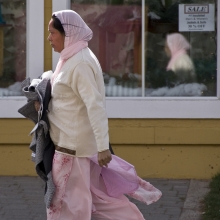Impact of the economic crisis and austerity measures on women

There is already growing evidence that the gender pay gap is expanding in both the public and private sectors, for example, Czech Republic and Lithuania. As women form a large proportion of public sector workforces, the impact of public sector job cuts are being felt most acutely by women. Many women will be forced to abandon their position in the labour force or move into the private or informal sector. The reduction in public services, which are already used more by women, will affect access to health, education and social care. A loss of services will also affect women in caring roles, with an increase in the already high rates of unpaid care.
Extensive changes are taking place in government services, which are affecting women as public sector workers, as benefit recipients and as service users. Government policies have not been informed by an awareness of how they will impact on women. This is even after the introduction of extensive equality legislation, which has attempted to improve the rights of women over the last thirty years. More statistics and other forms of data are needed to measure the impact on women as public sector workers and service users. After several decades of rising female participation in the labour market, the next decade could see a decline in the role of women in the workforce, accompanied by a loss of rights, which will lead to a reduction in the influence of women on a wide range of decisions.
There is a continued need to measure the impact of both the economic crisis and the cuts in government spending on women. As governments have been reluctant to use gender impact assessments to assess austerity measures, there will have to be an increase in political will to collect and analyse data. Trade unions and other civil society organisations have an important role to play in campaigning for research and analysis as well as undertaking it themselves. The damage done to equality institutions and organisation by a reduction in funding will have to be resolved by new investments in equality structures.

